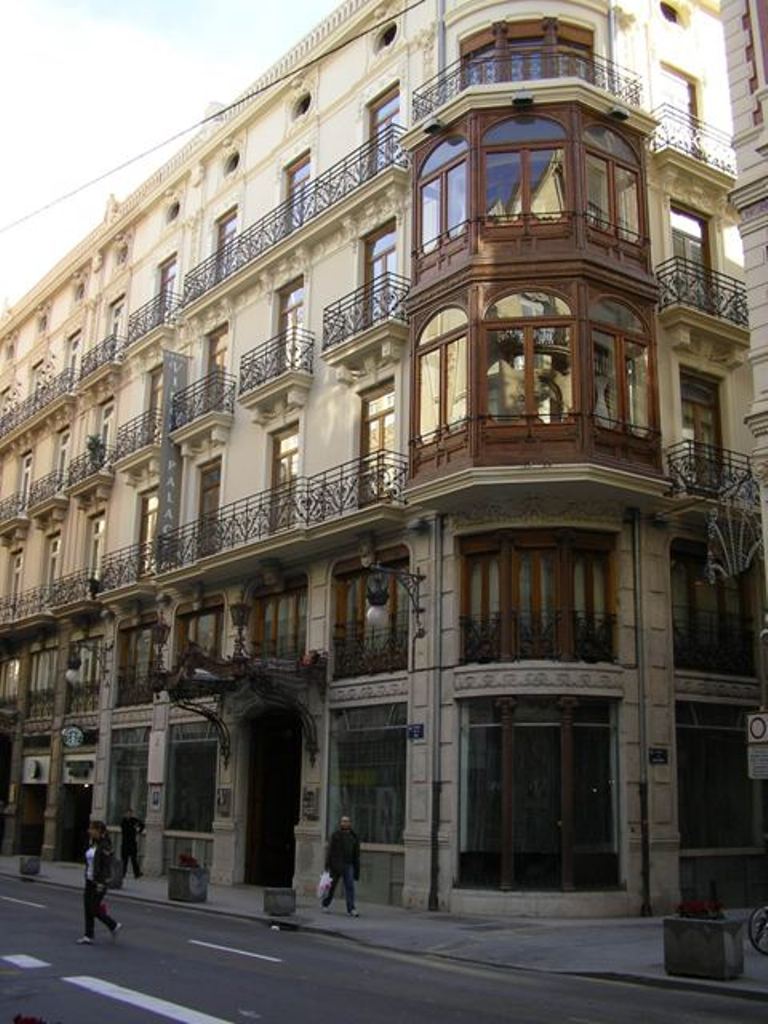Expats love Valencia
By Laurence Lemoine
www.valencia-expat-services.
In recent years many have chosen to live in Valencia, under the Spanish sun. Valencia has witnessed a massive surge of expats: French, Italian, British and North Americans. In the last 15 years, the 3rd largest city of Spain, with regards to population, has transformed itself into a very pleasant place to live…
Is Valencia better than Madrid or Barcelona? Definitely, without a doubt! In the past, Barcelona was more desirable but recently, it is being passed over because it has become overcrowded and to live there all-year long is no longer pleasant. Barcelona has become too touristic. That includes higher prices, longer queues, traffic jams and air pollution. Another big disadvantage about the Catalonian capital is the uncertainly about its future and the fact that not only would one need to learn Spanish, you would need to learn Catalan as well. As far as Madrid is concerned, the city has the disadvantages of being a capital city. It is expensive, polluted, has traffic jams, and because of its inland location, is too cold in the winter, too hot in the summer and lacks proximity to the beach.
Valencia: as a matter of fact
The capital of the Valencian Community seems to be the best compromise…
Not too big; not too small… Modern, pretty, with good access to transportation (train, highways, airport). Valencia is preferred by would be ex-pats. Living here is less expensive (30% less compared to Madrid), the weather is great (more than 300 days of sun per year). The beautiful Mediterranean beaches await you and the Valencians are beginning to be more receptive to ex-pats! In addition to all this, a big plus is security. The crime rate and delinquency are particularly low. This is a game changer: to live with a feeling of security is priceless. These small details may seem trite, but they make city living charming. This fact is often mentioned as a deciding factor by newcomers. Another asset: the availability of good international schools… French, German, American and British; a bit pricey (average cost per month according to age and the school selected, from 400 to 900 euros) but still much more affordable than in Barcelona and Madrid. Valencia has also many good universities, private and public.
The greater Valencia region has nearly 2 million inhabitants, including 800,000 in the center of the city, which includes approximately 16% of expats. The capital city of the Valencian Community has truly become Cosmopolitan, which adds to its charm.
It is difficult to get accurate numbers, but it is a known fact that the EU nationalities most represented are Romanian, Italian, Bulgarian, French and British. An estimated 200,000 French citizens live in Spain, and this number continues to grow by 5% annually according to the Ministry of Foreign Affairs.
The French community, of which the proportion of dual citizens is diminishing a little, has evolved during recent years. It is getting younger (the average age being 34 years old), and the socio-professional profile is changing to more managerial and liberal professions. Immigration to Spain is not exclusively for retired people anymore.
French youth, such as recent graduates or those with only a few years of professional experience are also choosing Valencia: their abilities to work as digital nomads and the abundant availability of flights to and from Paris allow them to keep their French clients while living near the beach.
A drawback to Valencia is the lack of professional opportunities; the unemployment rate is a bit higher than the national average (almost 19%), only a few large companies have headquarters in Valencia (Madrid and Barcelona have the edge in this area) and the salaries are a bit lower. Many expats create their own jobs via the status of freelancers or as entrepreneurs with their own companies.
The continuous influx of expats has started to affect the real estate sector: the number of transactions has increased since 2017, so prices have started to climb. As an example, the real estate firm Engel & Volkers beat their historical business record in 2016 and showed an increase of 46% in the number of rentals for the first 5 months of 2017 compared to the same period in 2016. On average, the purchase price has increased by 4.5% in Valencia and has increased by 9% in the historical neighborhood of El Carmen.
The rental market is becoming smaller and smaller because a large part of the rental sector is now focused on the short-term rentals to tourists, resulting in long term rentals becoming scarcer and subsequently more expensive.
Emerging from the shadow of her big sisters Madrid and Barcelona, Valencia seems to be at the beginning of a growth phase for its urban, cultural and touristic development.








Recent Comments